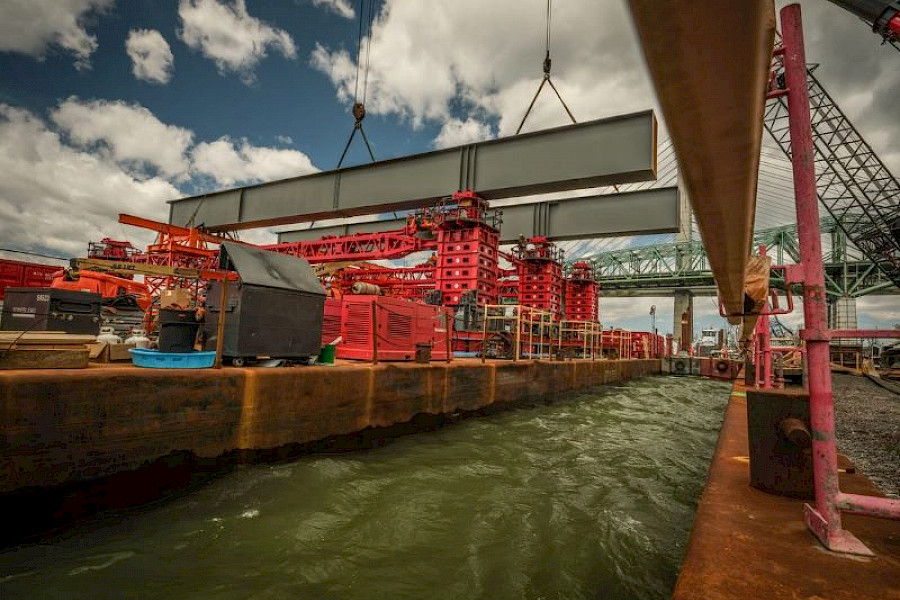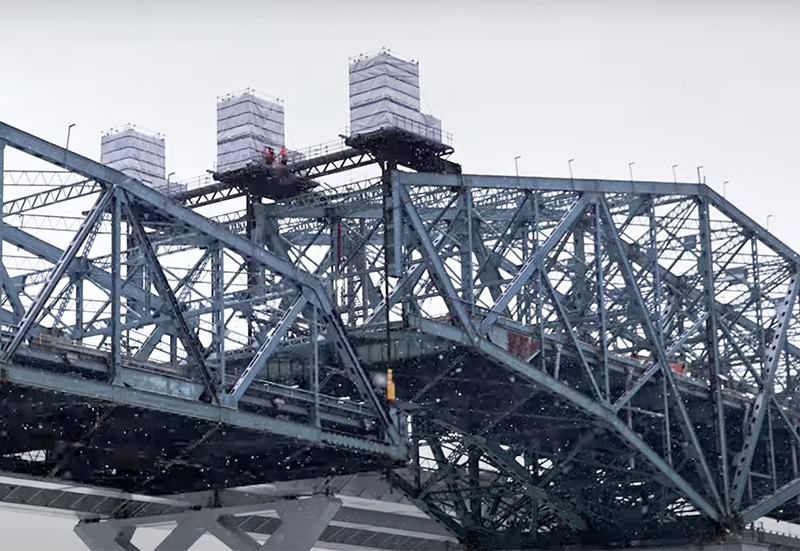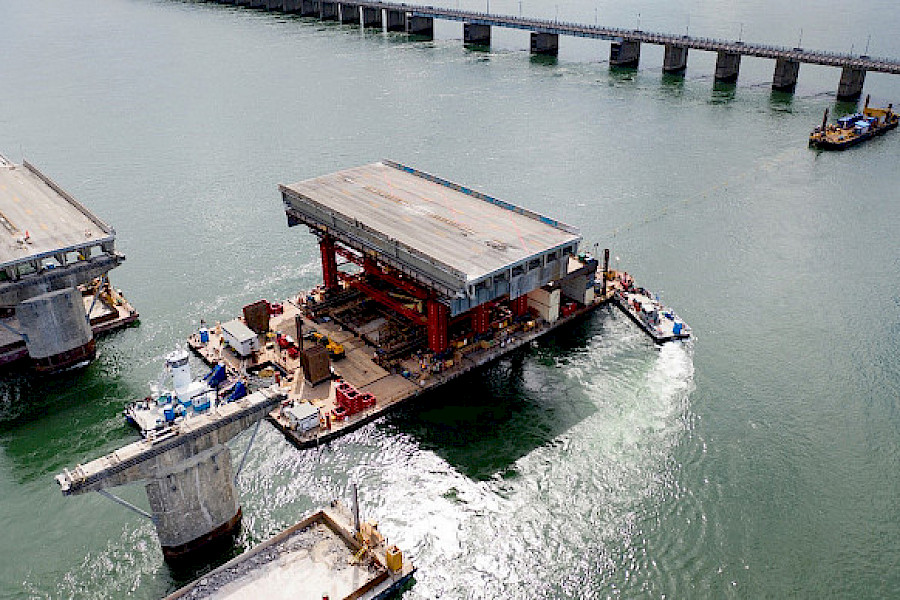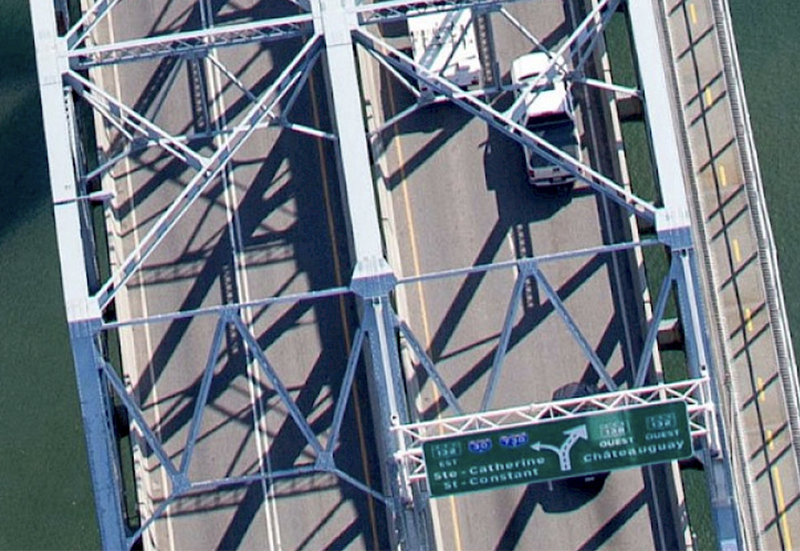Deconstruction of the Champlain Bridge:
co-creation of proposals for the recovery of materials and citizen engagement
Research Team
Dr. Alice Jarry
Dr. Nathalie Drouin
Dr. Shauna Janssen
Dr. Lan Lin
Dr. Carly Ziter
Tricia Enns
Thomas Heinrich
Christian Martone Donde
Romaric Desbroussesl
Collaborator: Jacques Cartier and Champlain Bridge Incorporated (JCCBI)
Funding
Social Sciences and Humanities Research Council

The Champlain Bridge is being deconstructed and its materials are offered to the Quebec community to design new urban, community and artistic interventions. In partnership with Jacques Cartier and Champlain Bridge Incorporated (JCCBI), the project initiates a citizen engaged pilot project including the co-creation of visual proposals for the recovery of materials from the bridge and the co-construction of socio-environmental indicators resulting from the process.
This research-creation brings together five researchers whose expertise intersect the fields of sustainable design, infrastructure project management, bridge engineering, citizen approaches and urban ecology.
The project includes in situ collaborations with Montreal citizens, an interview with JCCBI;
This research-creation brings together five researchers whose expertise intersect the fields of sustainable design, infrastructure project management, bridge engineering, citizen approaches and urban ecology.
The project includes in situ collaborations with Montreal citizens, an interview with JCCBI;
a visual co-creation charrette ; and workshops for the co-construction of socio-environmental indicators.
Large construction sites enjoy little social acceptability and the research considers the bridge to be a common good providing services.
The project draws attention to pressing ecological issues and proposes an engagement with obsolete materials.
By reimagining construction residues, the project mobilizes new aesthetic and critical links with the socio-spatial policies of urban space. Promoting the situated experiences and knowledge of citizens and shared decision-making, it propels new practical and reflective approaches to the appropriation of public places, biological and cultural diversity and the decompartmentalization of knowledge.
Large construction sites enjoy little social acceptability and the research considers the bridge to be a common good providing services.
The project draws attention to pressing ecological issues and proposes an engagement with obsolete materials.
By reimagining construction residues, the project mobilizes new aesthetic and critical links with the socio-spatial policies of urban space. Promoting the situated experiences and knowledge of citizens and shared decision-making, it propels new practical and reflective approaches to the appropriation of public places, biological and cultural diversity and the decompartmentalization of knowledge.






